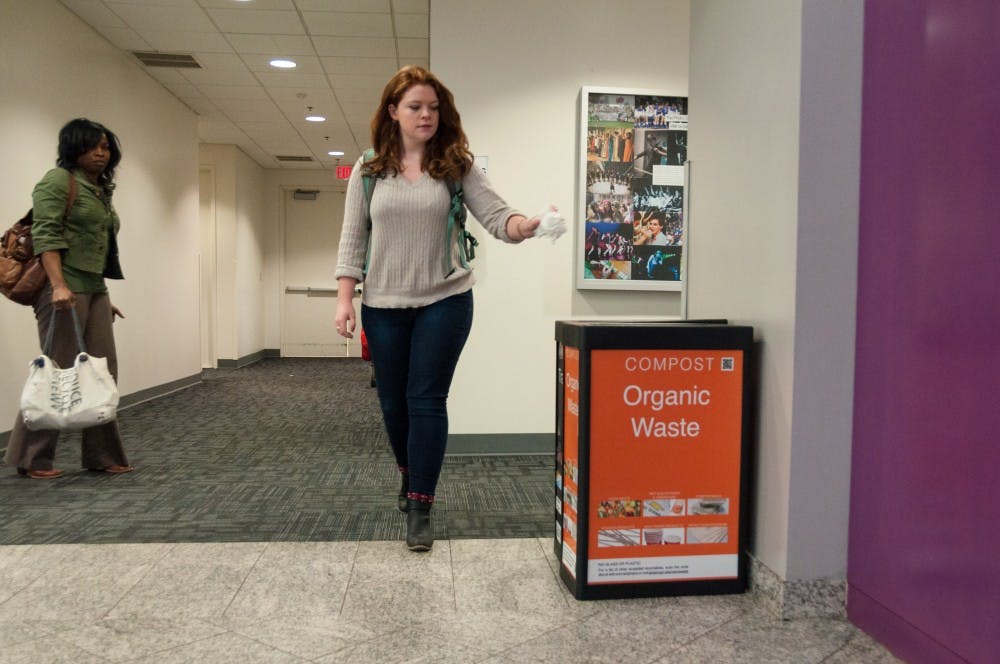Correction appended.
AU’s Zero Waste program will strive to educate students on what constitutes as organic waste this year to take the campus one step closer in reaching its zero waste goal.
The Zero Waste program is a University program under facilities management that aims to stop sending waste from AU to landfills and incinerators by 2020.
After introducing the four bin waste collection system in 2013, the creators of Zero Waste know that students can find throwing away garbage confusing, according to Zero Waste coordinator Helen Lee.
For this reason, the Zero Waste staff will carry out projects and campaigns this year that strive to teach students, faculty and staff about compostables. The staff will also take steps in creating awareness on the importance of correctly disposing waste. These two facets will ultimately progress AU’s zero waste and climate neutrality goals that the University hopes to accomplish by 2020, according to Lee.
Lee said she hopes that the program’s projects this year will combat students’ inexperience with compost. This inexperience is problematic since throwing away an item into the wrong bin contaminates the entire bin, she said.
“We don’t see much contamination in recycling, but we see a lot of contamination in organic waste,” Zero Waste intern Bryan Paz said. “That’s because compost is relatively new and a lot of people don’t know what it is.”
In order to stop this contamination, Zero Waste members want to place signs above the containers depicting what type of materials go into each bin. This will allow students to see the pictures in their peripheral views, which is important since the images will be eye level, Paz said.
This switch may help students determine what waste is organic, something that Lee said she wants students to know.
“I like to teach it as organic waste is anything that was once living,” Lee said. “Anything that is paper based, all of the to go containers from the Tavern, paper towels from the restrooms, paper cups from Starbucks or Davenport, all of those paper based products that have touched food or liquid in some way- they can be composted and turned into compost soil.”
To illustrate the importance of properly disposing organic waste, Zero Waste is unleashing a new awareness campaign through the form of a Twitter hashtag, Paz said.
"As a result of the climate panel, The Zero Waste office launched a new campaign (#WhyWeRecycleAU #WhyWeCompostAU) to teach our campus community how landfills are harmful to the environment and why composting/recycling is so important,” he said in an email.
Students should think twice when throwing away their waste because nearly 80 percent of AU’s waste is either recyclable or compostable, and therefore doesn’t need to be sent to a landfill, Paz said.
If AU decreases the amount of waste it sends to landfills, not only will the campus benefit environmentally, but it will also see economic perks, according to Lee.
“One of the main factors in the Zero Waste program is economics,” Lee said. “So when students or whoever on campus works to sort their waste into proper bins, it’s helping the University save money by not sending waste to landfills.”
Zero Waste ultimately wants students to know that trash doesn’t simply go away, and if the University can capitalize off of recycling and composting not only environmentally, but also economically, then the campus should seek to eliminate the amount of waste sent to landfills.
“We have such a finite amount of space to throw something away, put a cover on it and pretend that nothing is there,” Lee said.
Correction: The article originally stated that Zero Waste AU wanted to replace the stickers on the containers. Instead, they want to add the signs above them.





